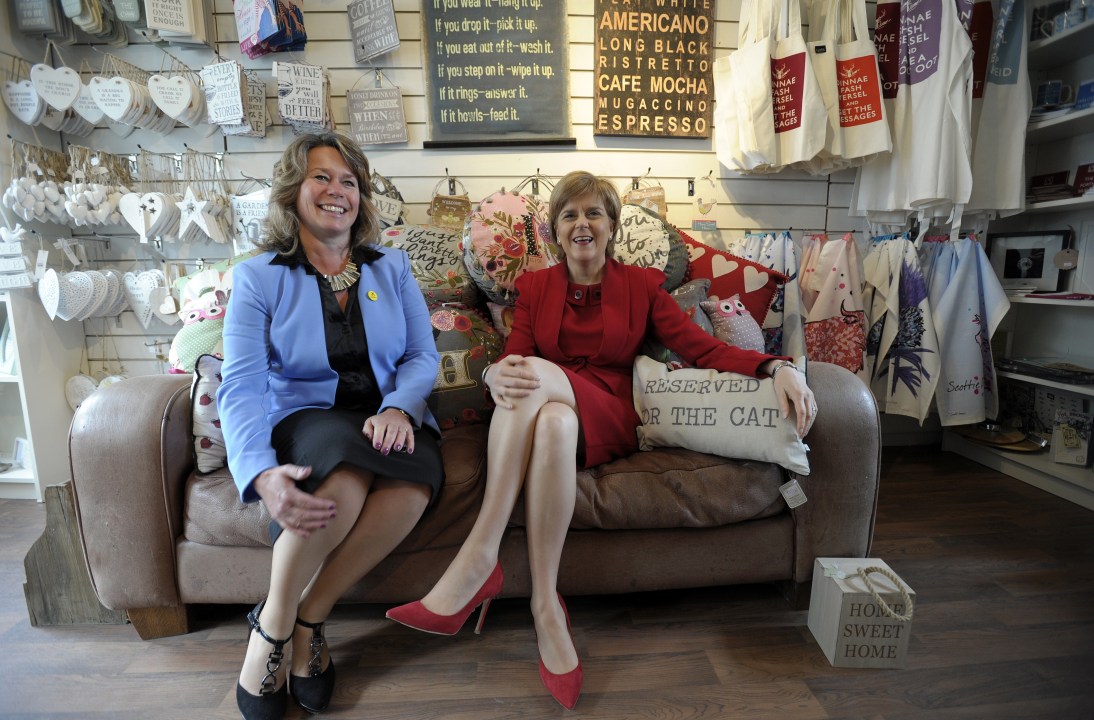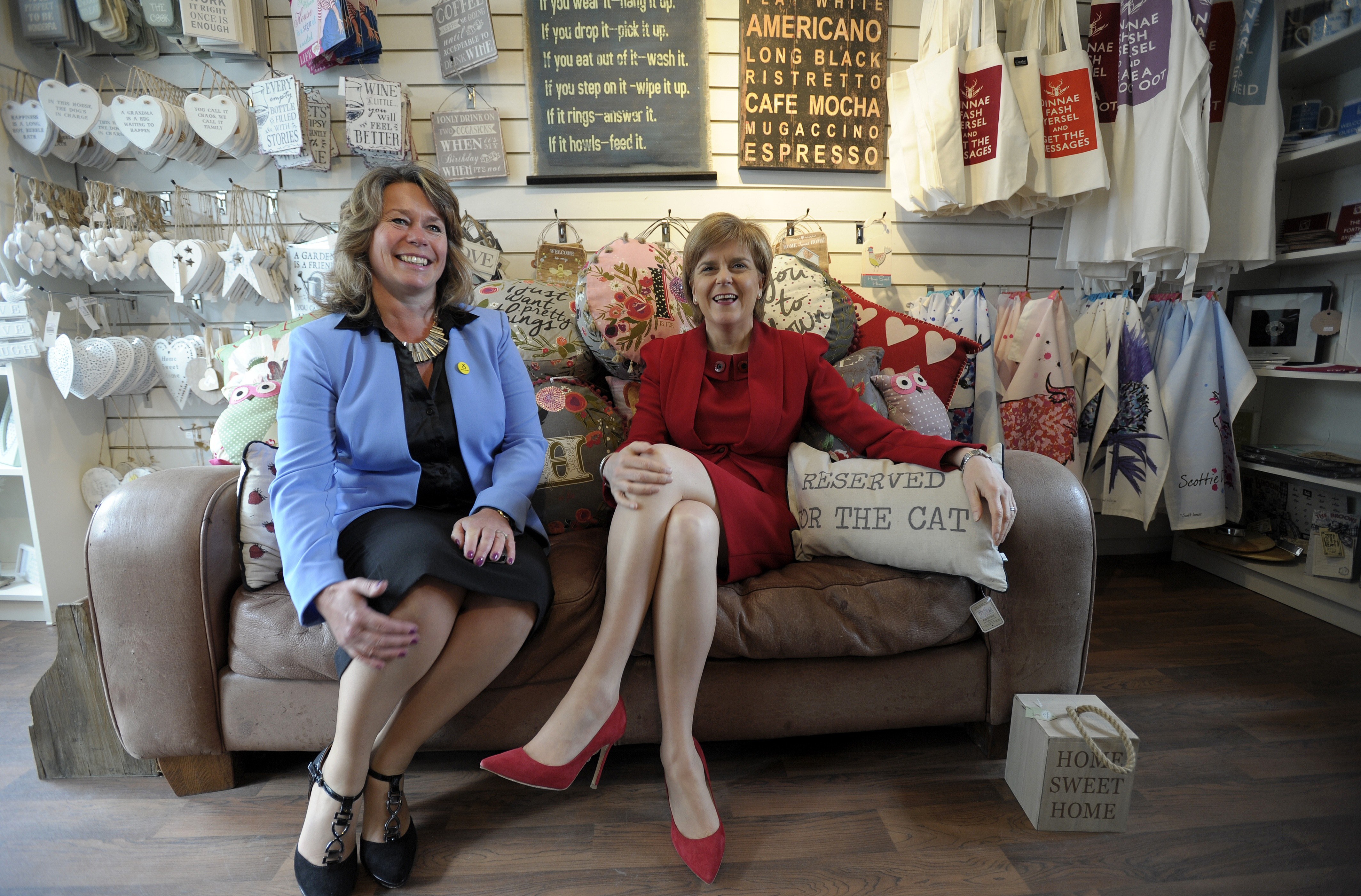The great thing about the ‘new politics’ – or at least the new politics we have lately been privileged to endure here in Scotland – is that it’s just as fetid and grubby as the old politics it replaced. The band may change but the music remains the same.
Consider the twin controversies swirling around the SNP. Neither, on its own, is enough to torpedo Nicola Sturgeon but, combined, they represent the largest challenge to her authority the First Minister has yet encountered.
First there is the curious case of Michelle Thompson, the MP for Edinburgh West. Mrs Thomson was previously managing director of the ‘Business for Scotland’ group arguing for a Yes vote in last year’s independence referendum. She received glowing endorsements – not least for her business nous – from senior figures within the party.
Awkwardly, it turns out that a considerable part of her business appears to have involved purchasing properties from desperate sellers at below market valuations. In 2009, for instance, Mrs Thomson and her husband bought an Edinburgh flat from a pensioner couple needing a quick sale on account of the husband having been diagnosed with bowel cancer. The Thomsons bought the property for £73,000 but, oddly, the Land Register records the sales price as being £105,000. “We needed the money”, the previous owner said. “We knew that we would take a loss, but we were desperate. I knew I was being taken advantage of, but we were about to get our home dispossessed.” Another seller in financial difficulty sold his flat to the Thomsons for around £60,000 and is surprised – to put it mildly – that the sale price was registered as being £85,000″. “I never got anything like that”, he says.
The Thomson’s solicitor, Christopher Hales, was struck off in May 2014 for professional misconduct, much of it centring on work he did for the Thomsons. A disciplinary tribunal concluded he “must have been aware that there was a possibility he was facilitating mortgage fraud, whether or not this occurred.”
In December 2014, the Law Society of Scotland raised Mr Hales’ case with the Crown Office “informally” and did so again “formally” in July this year, by which time, of course, Mrs Thomson had been elected to parliament. The 12 month delay in alerting the Crown Office is, on the face of it, inexplicable.
As always, the detail of the law – and Mrs Thomson’s potential or alleged collusion in mortgage fraud – is one thing and the public impact of the case another. It is not illegal to purchase property for less than its market value and nor is it illegal to take advantage of sellers who are battling cancer or are in considerable financial distress. On the other hand, it is not the sort of behaviour you would expect from a self-styled champion of ‘social justice’.
Ms Sturgeon says the first she knew about any of this was when she read about it in The Sunday Times. Mrs Thomson has resigned the party whip, pending the outcome of the police investigation. She maintains her innocence. But this is a lose-lose situation for the MP and her party leader. As a political matter, the distinction between what is legal and what is ethical is of considerable importance.
And at the very least, there are questions about the manner and seriousness of the SNP’s vetting procedures. Then again, these have plainly not been terribly rigorous. It is true that if a prospective MP says there is nothing that the party needs to know then there may sometimes be nothing the party can do to prevent being blindsided by this kind of affair.
On the other hand, candidates such as Paul Monaghan, the eccentric MP for Caithness, were approved despite him having likened life under the Cameron-Clegg government to ‘the early days of the Third Reich’. At the very least this might, you would have thought, have placed him in the Untouchable Zoomer category. But, no.
And so at First Minister’s Question today we enjoyed the spectacle of the Presiding Officer telling parliament that Nicola Sturgeon had no need to address the allegations about her party’s business spokeswoman in the House of Commons.
Granted, Sturgeon chose to answer – or, rather, pretend to answer – the questions anyway. As a matter of politics and perception she could hardly do otherwise.
Then there’s the fracas over the Scottish government’s decision to hand £150,000 of public money to the organisers of the T in the Park music festival, Scotland’s largest such gathering and, if you like, the Caledonian equivalent of the Glastonbury festival.
According to Fiona Hyslop, the culture secretary, this unusual grant of public money was necessary because there was a risk that, if it were not given, the festival – a profitable, private concern – might have moved out of Scotland. If you believe that, you’ll believe anything. Granted, £150,000 is hardly a world-changing amount of money but the principle and the perception is, again, as important as the substance.
Certainly, it was wise of the concert promoters to engage a lobbyist to press their case with the government and wise too to select for the job a lobbyist, Jennifer Dempsie, who had been a special advisor to Alex Salmond, is currently the partner of Angus Robertson MP, and was until recently a candidate to be selected as an SNP candidate for next year’s Scottish parliament elections.
There is, of course, nothing wrong with lobbying and no suggestion Ms Dempsie did anything improper.
Still, the opposition parties have no great difficulty in spinning this as another example of how, if you are ‘sound’ politically, doors can be opened and blind eyes turned.
In similar fashion, the delay in the Law Society’s reporting the Thomson case to the Crown Office may – or may not! – be at least partially explained by the fact the secretary of the Law Society committee responsible for dealing with disciplinary tribunals was herself a member of ‘Lawyers for Yes’ and, according to her Facebook page, a keen admirer of a certain Michelle Thomson. This, of course, could well be entirely coincidental.
But, again, you can see how these matters can be used to their profit by the opposition parties at Holyrood. As so often, it is not the detail that matters but the manner in which a ‘narrative’ can be constructed. One that suggests, fairly or not, that there is one rule for on-side Nationalists and another for everyone else.
Scotland is a small place and being so it is inevitable that these kinds of storms must arise. But the SNP, having made great play at the expense of other parties’ ‘sleaze’, can hardly be surprised if Labour and the Conservatives enjoy themselves now the boot is on the other foot. That’s politics and that’s the way it is – and should be – played.








Comments